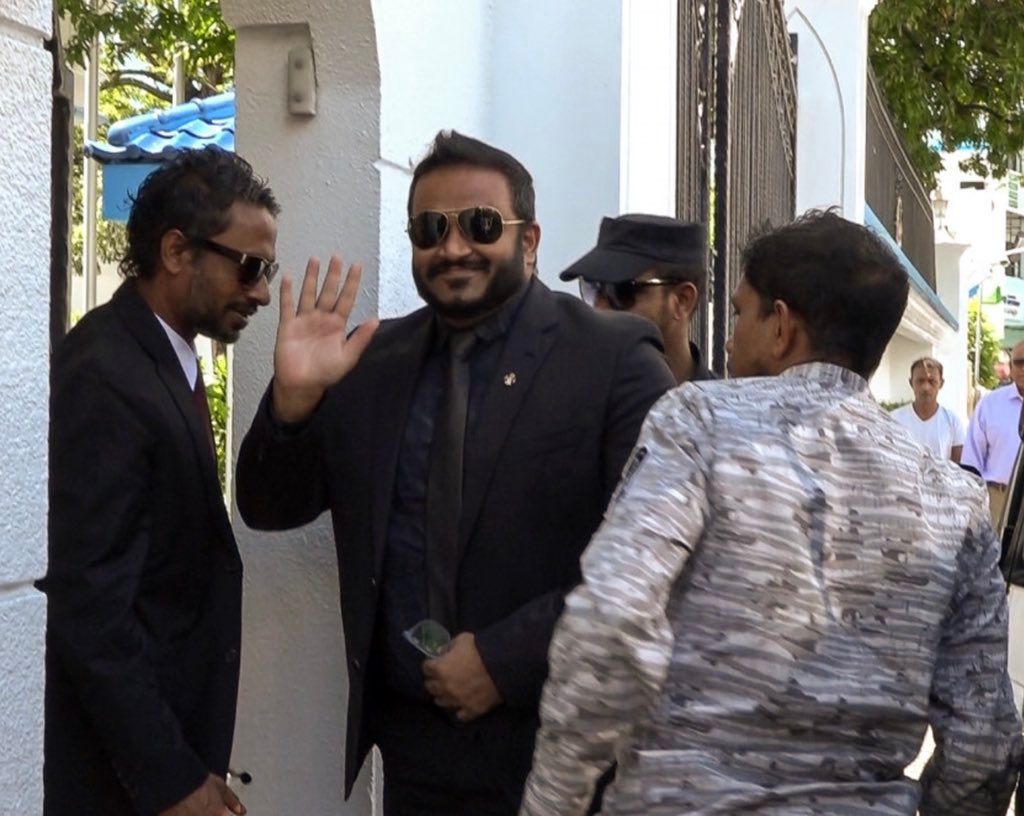Outrage as Adeeb given permission to travel abroad
Police and corrections officers to accompany ex-vice president

12 Jun 2019, 09:00
The government’s decision to allow Ahmed Adeeb to seek medical treatment abroad has caused consternation among lawmakers who fear he may flee justice.
Ahmed Adeeb, who served as former president Abdulla Yameen’s second deputy, was accused of plotting to assassinate Yameen and involvement in the embezzlement of more than US$90 million from state coffers. He was sentenced to 33 years in jail but had his convictions quashed in May by appellate courts on the grounds of undue political influence over the trials in 2016. The High Court has ordered fresh trials for two of the three convictions against Adeeb.
On Tuesday, the Maldives Corrections Service announced that Adeeb had been given permission to travel abroad on “medical grounds” – to seek treatment for glaucoma.
Maldivian Democratic Party MP Mickail Naseem is among those concerned that Adeeb may try to escape justice. On Wednesday, he submitted an early day motion to parliament calling on the MCS to explain what security procedures it had in place to prevent Adeeb absconding.
Become a member
Get full access to our archive and personalise your experience.
Already a member?
Discussion
No comments yet. Be the first to share your thoughts!
No comments yet. Be the first to join the conversation!
Join the Conversation
Sign in to share your thoughts under an alias and take part in the discussion. Independent journalism thrives on open, respectful debate — your voice matters.




